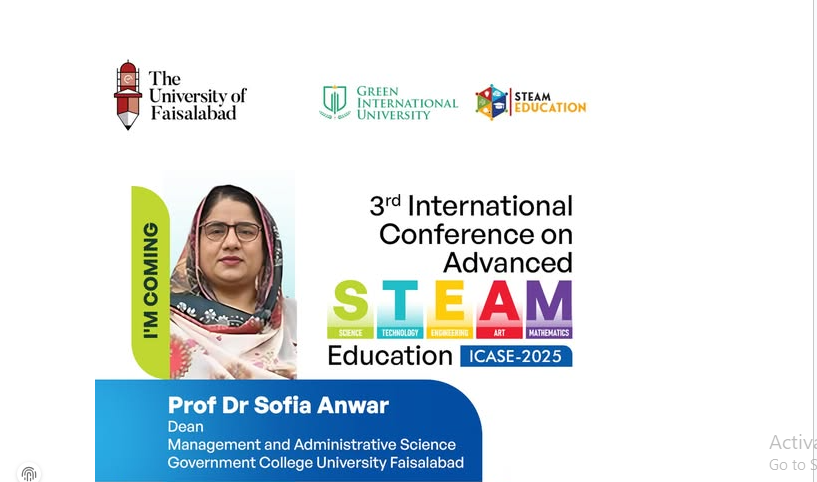Green Business Practices, Agricultural Entrepreneurship, Post-COVID Fintech Transformation, and Global Marketing Strategies: A Comprehensive Overview
The recent academic festival held at Venue 3, Amin Auditorium, National Business School 1, GC University Faisalabad, in collaboration with The University of Faisalabad, showcased a remarkable lineup of discussions and presentations on green business, sustainable marketing, and innovative financial strategies in a post-COVID era. Chaired by Dr. Sofia Anwar and co-chaired by Dr. Usman Ali, the event brought together distinguished academics, researchers, and industry leaders to share insights that are shaping the future of business and entrepreneurship in Pakistan and globally.
Keynote and Invited Talks
The festival featured several invited talks and presentations by prominent speakers from academia and industry:
- Wahaj Saraj, CEO of Nayatel, Pakistan, discussed the effects of mycotoxins on food supply and management strategies, highlighting the importance of ensuring food safety in agricultural practices.
- Mithat Derik from Selcuk University, Konya, Turkiye, delivered a presentation on cultural relevance and innovation in building sustainable marketing strategies, emphasizing the role of local culture in global business practices.
- M. Abrar from GC University Faisalabad focused on socially responsible leadership and green investment as drivers of voluntary employee green behavior, linking corporate responsibility with sustainable outcomes.
Economic and Leadership Insights
Several presentations explored the intersections of finance, leadership, and economic growth:
- Muhammad Jamil Khan discussed the impact of special savings certificates on the GDP of Pakistan, offering an analysis of national investment strategies.
- Qamar ul Islam highlighted how exploitative leaders drive ostracism and withdrawal in political climates, providing insights into organizational behavior and leadership ethics.
Technological Innovations and Research
The festival also emphasized the integration of technology in research and innovation:
- Ahmed Shahzad presented on automated detection and classification of dental caries using YOLO-based deep learning models.
- Mehak Rana introduced a LIME-based explainable deep learning framework for handwritten digit classification.
- Muhammad Imran Majeed discussed project management strategies and complexity as determinants of project success, linking digital tools to operational efficiency.
- Hammad Imran highlighted enhancing employee innovation through AI digital skills, knowledge integration, and e-leadership, bridging technology and organizational growth.
- Muhammad Shahid presented research on nanomaterials for plant disease diagnosis and control, showcasing cutting-edge applications in agricultural entrepreneurship.
Marketing and Consumer Behavior
Sustainable marketing and consumer behavior were also central themes:
- Mubbashra Habib explored the influence of sustainable marketing on repeat purchase behavior, demonstrating the importance of ethical and eco-friendly business strategies.
Conclusion
The festival successfully combined insights from green business practices, agricultural entrepreneurship, post-COVID fintech transformation, and global marketing strategies. It highlighted the critical role of research, innovation, and leadership in driving sustainable economic and social development. Hosted in collaboration with The University of Faisalabad, the event provided a platform for students and faculty to engage with global experts and showcase their innovative research. The University of Faisalabad continues to promote academic excellence and sustainable practices through such initiatives, reinforcing its commitment to shaping future leaders. Events like these are essential for fostering collaboration between academia, industry, and policymakers, paving the way for a greener, technologically advanced, and ethically responsible future in business and entrepreneurship.

